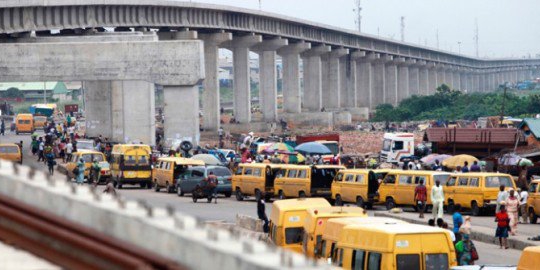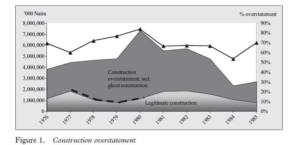Since the end of the financial crisis, infrastructure construction is booming in Nigeria. Rapid population growth and urbanisation make infrastructure and real estate construction in the country a necessity. The construction industry is now the second largest employer, growing around 9.5% annually over the past years. Construction is a particularly interesting sector for investment as profit margins can be up to 30-35% of total project cost.
However, the large increase of investment in the sector provoked reminiscence to the construction-boom in the 1970 oil boom years, during which records of infrastructure investment were highly-overstated and much of the investment was actually redirected to private accounts.
It seems as if these challenges did not vanish completely. A 2013 report by Thomson Reuters suggested that in order to invest in Nigeria “opaque land laws, corruption, a lack of development expertise and financing, a dearth of mortgages and high building costs will take courage and influential local partners.” The report concluded that business is frustrated by widespread corruption, poor state infrastructure and a lack of expertise and financing. Developments often run out of money because they are poorly planned, built or managed.
The country’s continued dependency on oil aggravates the problems: The recent depression on the oil price has put the country in trouble. In an attempt to increase the supply of foreign currency in the country, Nigeria gave up its 16-month dollar peg and let the Naira float free in July this year. As a result, exchange rates plummeted.
The problems are illustrated by the recent failure of the prestigious Port Harcourt Monorail project despite several hundred million US$ invested, the failure to attract investors to the Public Private Partnership for building the Lekki Lagos International Airport as well as the abandonment of the ‘Centenary City’-project raised further doubts about the sustainability of the boom.
Also, the developments in the construction sector have so far failed to benefit all Nigerian’s equally. The majority of Nigerians still live in poverty in slums, where building affordable housing is not a popular investment. Moreover, potential negative environmental effects of most large-scale projects are only marginally taken into consideration.
2016 Nigeria certainly differs from 1970 Nigeria. Institutions are more stable, the rule of law has been improved and the country recently experienced its first democratic transition. Yet Nigeria is still far from having overcome all of its impediments in the construction sector. Despite all the optimism, infrastructure investment in Nigeria is still risky business.







